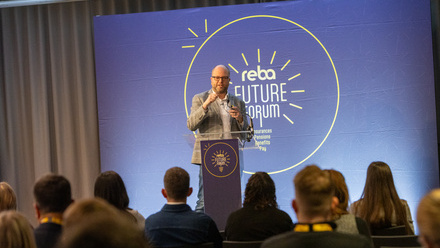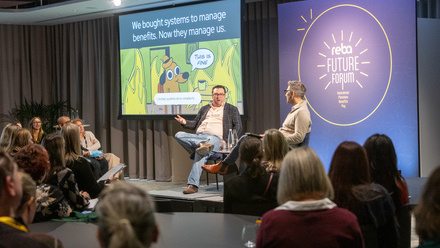How your reward strategy can be the foundation that supports a positive working culture

This commercial and reputational impact is why so many UK companies sign up to consultancies like Best Companies (the consultancy behind the annual Sunday Times list of the 100 Best Companies to work for) - to measure and improve how they are doing each year in this critical area.
Although research shows that it’s the behaviour of managers and leaders which has a major impact on culture – it’s an organisation’s reward strategy that provides the framework and tools they need to build a positive working culture. But how do successful organisations build that winning strategy?
Positive preparation
In our experience, the process of building the strategy is as important as the approach itself.
The first job for any organisation which wants to move the needle on culture, is to get buy-in from the top team. These aren’t just the people who will ultimately fund any changes you make but, as the people who set the tone for the organisation, they are the ones whose buy-in you will need in order to start making any changes.
The leadership team will also be your first stop when it comes to identifying the behaviours and values that you need to put in place in order to support a positive working culture. Some organisations will have done this work in the past, while others may have never done it at all. In any instance, a reward strategy must be built with an idea of what that culture looks like.
Mind the gap
The next stop in developing your reward strategy should be your employees. Whether you are a business of 100 or 1000, you need the perspective of your people on how reward can support a positive working culture.
By listening to their ideas about what is good, bad and obsolete in the reward mix you can start to get their approval for any changes you need to make. You can also ensure that what you put in place is aligned to their expectations.
You’ll also need to benchmark the kind of reward competing businesses offer to their workers. Broader research into best practice – particularly around the use of technology in delivering and improving reward – is critical too.
Time for tactics
It’s only having done all this work that it’s time to start shaping reward strategy. To effectively support a positive culture, it needs to reflect the way people work, how they are organised, how they are managed and their contribution to the business.
It also needs to be aligned to specific business outcomes: increasing employee engagement, customer satisfaction or profitability will be high level targets. However, they must also be linked to specific changes such as increased retention, reducing the cost of recruitment. This is the point where the nature of the reward mix comes into question.
Adopting an approach which considers total reward – the full package of pay, benefits, professional development and recognition – is the most comprehensive way of doing this. After all, employee benefits cannot make up for deficiencies in the other parts of an employee’s experience.
It’s also important to think about how elements of the reward mix will be delivered. Many employees now expect choice, personalisation and self-service rather than a one-size fits all proposition.
There is also a growing emphasis on having access to voluntary benefits which support financial wellbeing – such as financial education or planning education tools – and employee health.
Communication is key
Most good reward strategies will deliver an improvement when they launch by dint of them being new.
For a sustainable impact on culture, reward strategy needs to have a way of keeping the excitement alive after launch. The plan should ensure reward is a living part of the business which is communicated, measured and managed effectively.
This may sound like hard work but the truth is that positive culture will only ever evolve through ongoing commitment from the business leaders to use the tools you have provided. That means HR and reward teams need to be the cheerleaders for their reward strategy. By doing that, the culture gains will follow.
This article is provided by Edenred.
If you'd like to further develop your knowledge about employee wellbeing, a day at the Employee Wellbeing Congress on 20 June in London, is the essential event for you.
Supplied by REBA Associate Member, Edenred
We help you build stronger connections with your employees to drive higher engagement&performance.







